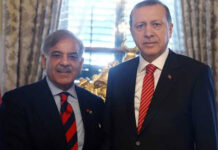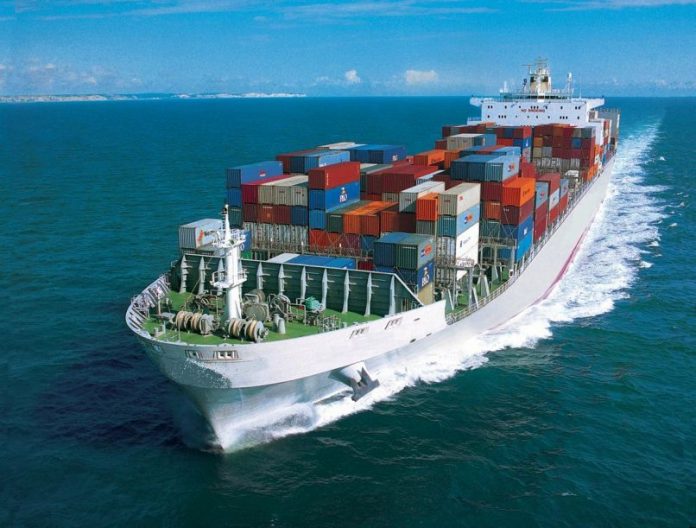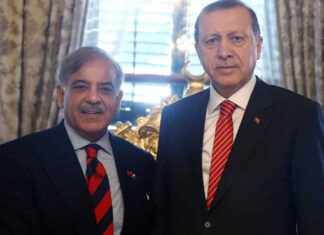LAHORE: The leading 26 textile exporters of Pakistan have demanded the government to intervene by giving them the option to make their international export contracts null and void to mitigate losses, Pakistan Today learnt on Tuesday.
According to informed sources, exporters expect these losses to be approximately Rs 12-15 billion.
“The total forward expected booking is estimated to about $3 billion,” sources said.
They added that if this value is closed out today, the average difference on these bookings is about three per cent, which equates to $90 million or approximately Rs15 billion.
“Exporters have requested the government to use the reserve fund, which has around Rs100 billion of funds, to settle the export forward closeouts with commercial banks as soon as possible,” sources said.
As per details, the exporters said that over the last few months, they had sold forward dollars at approximately Rs 160, which means they would have got Rs 160 for every dollar paid by them.
Exporters book forwards to hedge their foreign exchange exposure by essentially agreeing to sell their future dollars from export proceeds in the present. This means that they will get a premium on the prevalent USD/PKR rate on a particular day for a fixed tenor.
For example, a textile exporter is expecting payment for his shipment six months from today. He will approach his banker and ask to book those proceeds today. The reason to do this can either be that the market is very stable or the exporter is expecting the rupee to appreciate. By booking his proceeds at a higher rate (prevalent dollar rate plus premium) he is betting that 6 months from now the market rate will be lower than the rate he has booked thereby receiving more rupees for his dollars.
Now, one of three things can happen after six months:
- The USD/PKR market remains at 155 and the exporter converts his dollar proceeds at his forward booking rate of 160 and makes Rs5/dollar more than he would have if he had not booked an export forward.
- The USD/PKR depreciates to 165 and the exporter has to realise his proceeds at his forward booking rate of 160 and makes Rs 5/dollar less than he would have if he had not booked an export forward. It’s Important to note that this an opportunity loss and not an actual loss.
- Due to some unforeseen circumstances his dollar proceeds are either delayed or his order was cancelled meaning those ‘forward sold’ dollars will not be coming. In such an instance the bank will ‘close-out’ the export forward contract. This is done by offsetting the forward rate with the USD/PKR on the day the 6-month period finishes. If the rate is higher than 160 the bank will charge the exporter that difference, if it is lower the bank will pay that sum to the exporter.
So when the rupee was stable, hovering at a calm 155, a lot of exporters booked forwards at 160, some perhaps at higher rates. The expectation was that it would remain stable or appreciate further and exporters would make a killing. That did not happen.
In the wake of the virus outbreak, the rupee depreciated sharply within days and is currently in the 165-167 range, much higher than the forward booking rates.
While condition ‘b’ mentioned above will apply to those whose orders aren’t cancelled, exporters who are facing heavy cancellations due to the global pandemic will have to bear a loss as banks close out their forwards; outcome ‘c’.
“Whenever an exposure is hedged, for one party to make a profit, another has to make a loss. This is an inherent and implied risk. Exporters now asking for a bailout made a bet and lost. The taxpayer should not be charged for this,” a banker commented on the exporters fresh demand that the government write off the amount they owe to banks after close-outs.
“As our orders are deferred or cancelled due to the Coronavirus-led shutdown of port operations and markets, we are receiving no dollars in sales to settle this forward. This would have been fine if the dollar had remained at its value”, said one exporter.
“However, the sudden upsurge in dollar value means that exporters have to pay the difference out of their pockets, hence causing them a loss,” sources said.
They added that the exporters told the government that this is something that they cannot afford in the given circumstances, and they will likely be paying penalties or even default.
“It is essential for the government to reduce these losses for the textile sector to stay afloat. We stand behind the government to minimise unemployment, but we need assistance to help do this,” sources quoted the exporters as having told the government.
Sources from the banking and other market segments, however, said it’s blackmailing on the part of exporters, who want the government to fund their gambling.
“By no means, this demand by exporters is justified,” sources added.
“If the price of the dollar had gone down they (exporters) would have earned millions of dollars,” one of the sources added.
One of textile exporters, who made this demand and didn’t wish to be named, said they had made this demand as most of the exporters sell dollars forward.
“With no proceeds coming now, it will cause a serious problem for them so this demand is justified,” he said.
Agreeing with his colleague, another exporter said that it is justified because “for instance, if we have manufactured clothes for Zara and they are not purchasing it now due to COVID-19, the merchandise will be useless for us as we have incurred cost of production and other expenses on it,” the exporter said.
He added that exporters do benefit from selling forward dollars but in the current prevailing situation it would be a huge loss for exporters who are facing a lot of hardships due to the global pandemic..
“In the given circumstances, the government should support the export oriented textile sector so it is a justified demand,” he opined.
























[…] post Exporters demand bailout as currency bets go wrong appeared first on Profit by Pakistan […]
While the companies of whole world are coming out to support the poor masses, here in Pakistan the rich company owners and exporters, instead of helping and contributing with donations, are asking concessions from Govt run from poor taxpaying public money. What a country really.
Excellent investigative piece by Yousaf Nizami and Hassan Naqvi.
They should be fined double the amount for even considering to lay claim to taxpayer money this way.
If they have got 5rs/dollar extra they count that as their profit and would be appreciating themselves for saving extra millions of dollars. But now their gamble hasn’t worked out and they got a loss from their earlier profit (presumably they’ve got profit from Jul-19 to Mar-20 when there was no change in USD value or even a decline in USD value). They want govt. to fund their gamble from tax payer’s money. They don’t even want to pay for their gambling from their earlier profits. I don’t know why people don’t feel ashamed of those absurd demands.